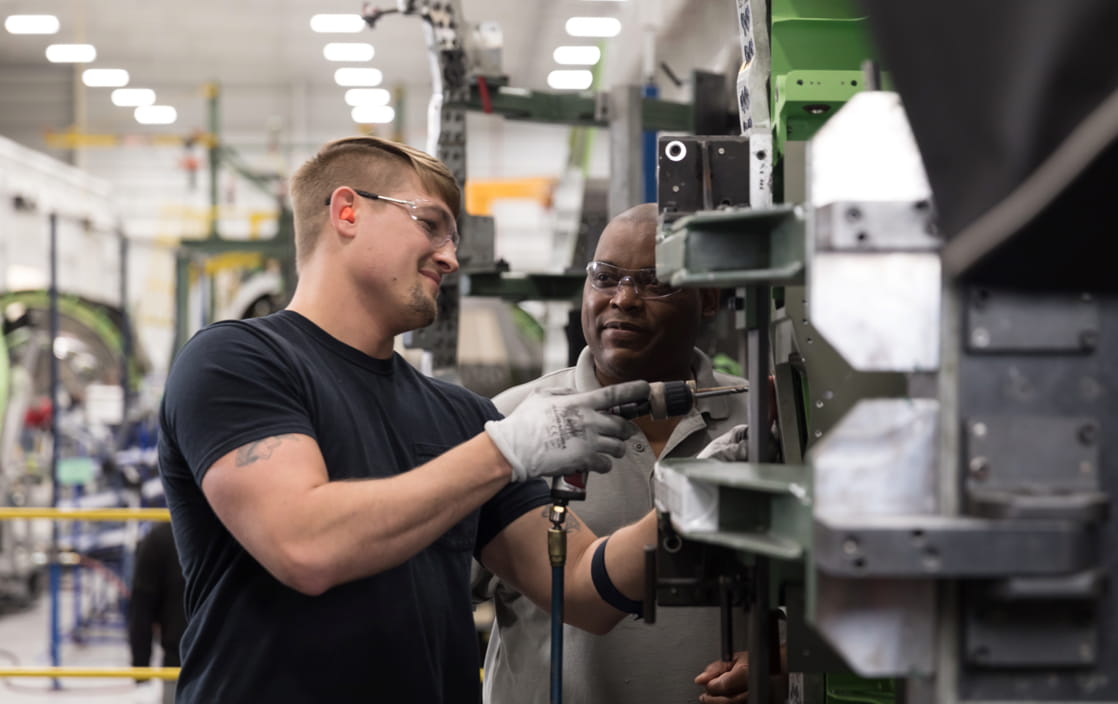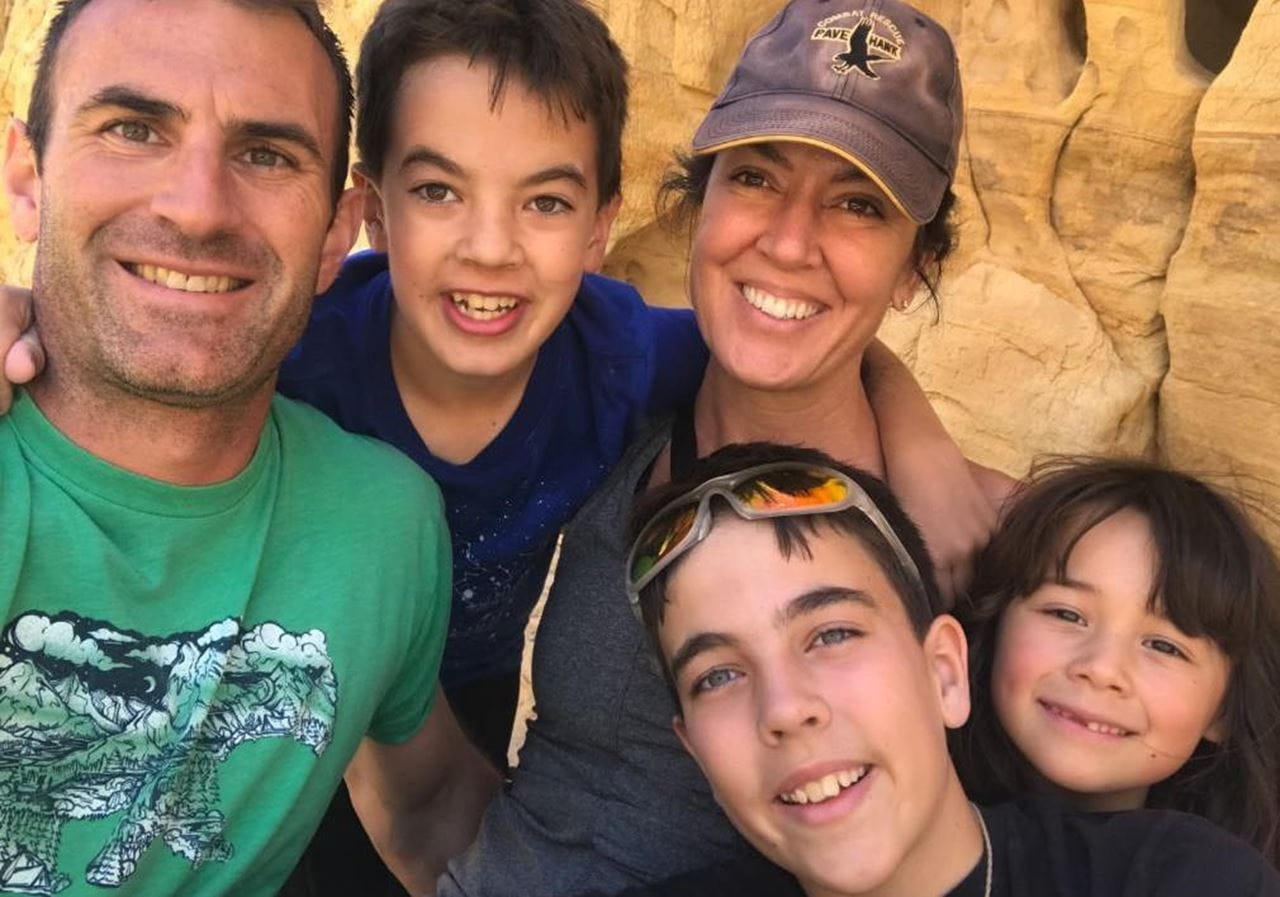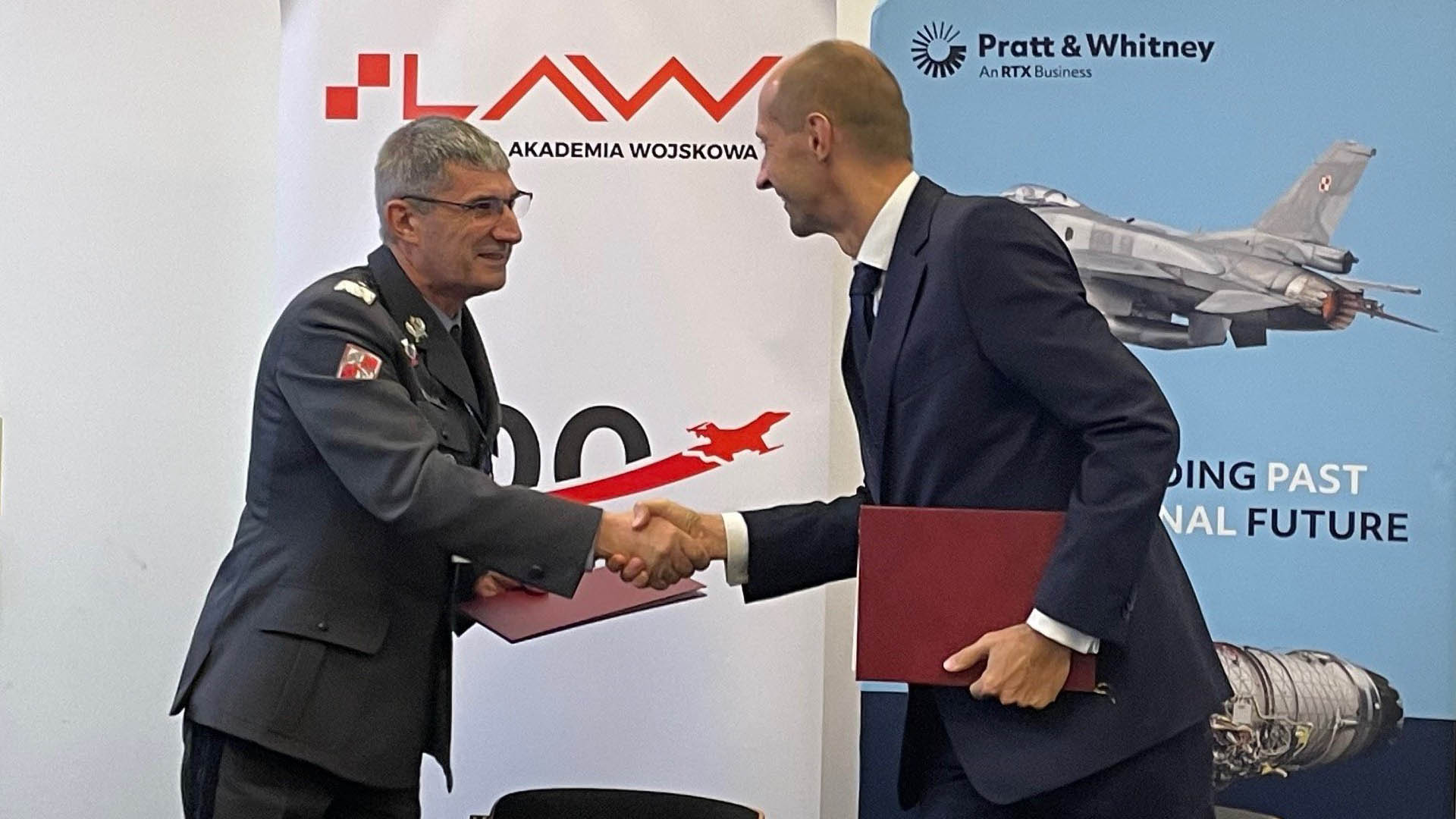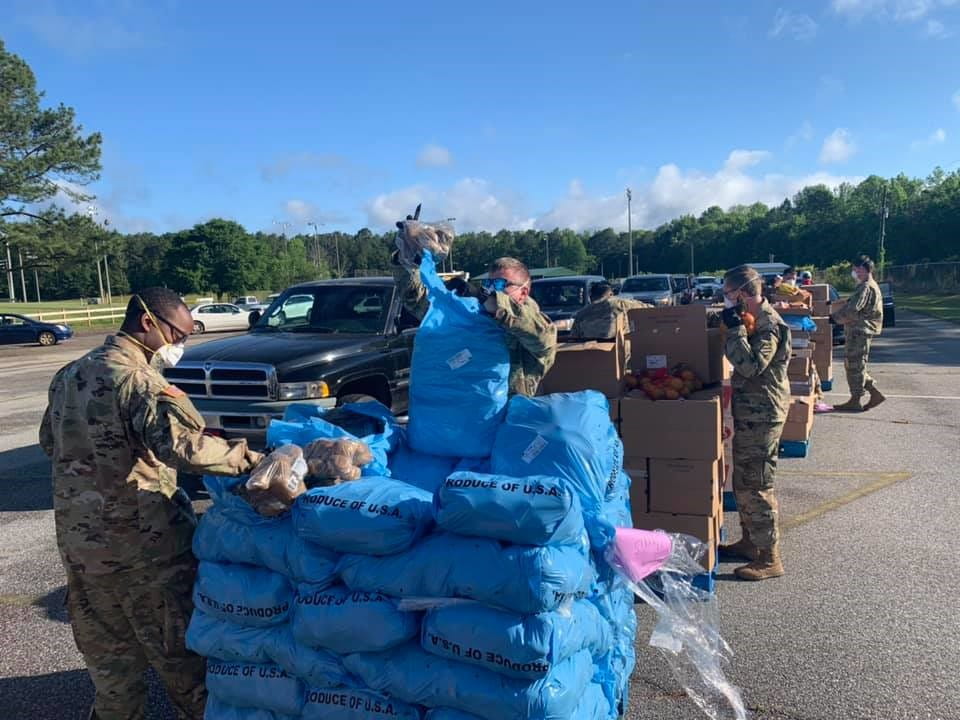The families also serve
Supporting our military members begins at home. Their home.
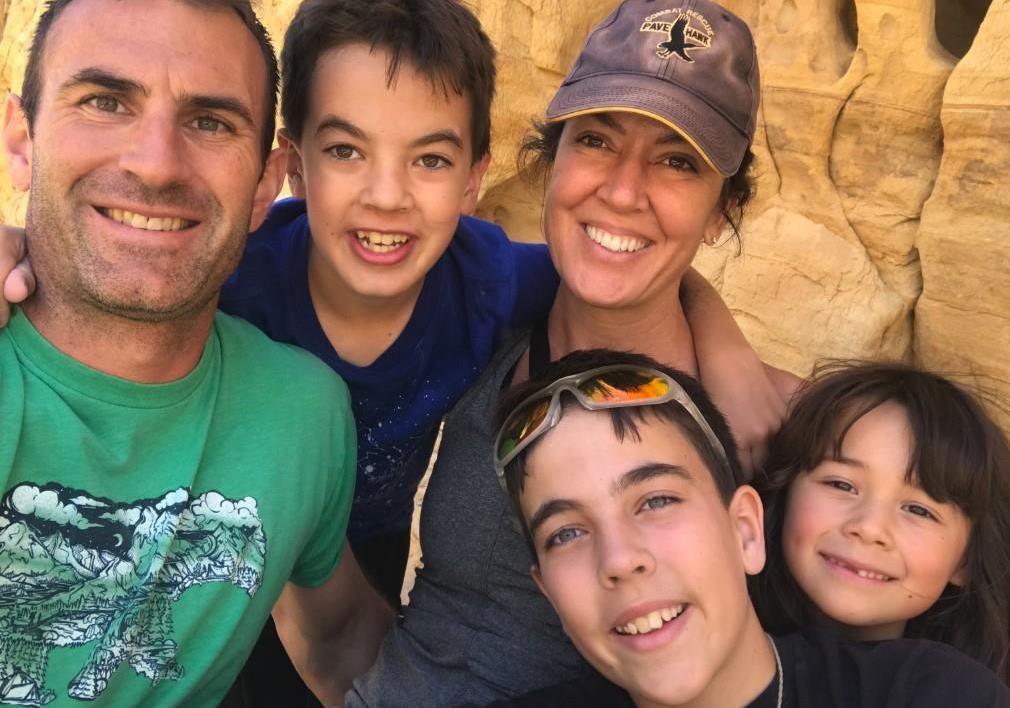
Heather Uberuaga, a senior communications manager at Raytheon Technologies, has found the company flexible enough to help her support her husband’s U.S. Air Force career. Shown with Heather are husband Mark and children Eric, Ryan and Eden.
Military service often calls for sacrifice, from the individual, from the community and from the families who share the burden.
A deployment can strain the entire household. Starting over at work or school in another new city. Difficulties transitioning to new jobs. And some 24% of military spouses are unemployed — approximately six times the national average — and earn an average of 26% less than their civilian peers, according to the U.S. Department of Defense.
That’s why Raytheon Technologies offers a wide range of unique opportunities and programs to support members of the military, veterans and their families.
Kids learn to appreciate STEM subjects at Centers of Innovation, facilities built through a partnership with Boys & Girls Clubs. The company works with Student Veterans of America to help veterans translate their valuable skills into work and educational opportunities. Spouses can grow flexible careers at the company through the U.S. Department of Defense’s Military Spouse Employment Partnership. And active duty military seeking to transition to a civilian career can gain guidance and support through Raytheon Technologies’ return-to-work program.
“When employees with a military background come on board, especially later in their career, we make sure they have the resources necessary to help them succeed,” said David Emmerling, a former Navy chemist and now vice president, Commercial Aftermarket at Pratt & Whitney.
Towards a rewarding career
Heather Uberuaga, a senior communications manager at Raytheon Technologies, has made good use of the company’s flexible work programs, including the opportunity to telecommute.
“I have had great bosses that value my contributions, and the company has been flexible and agile enough to allow me to do work I enjoy and accommodate moving for my husband’s (U.S. Air Force) career,” she said.
The daily life adjustments that service can demand sometimes add up to financial and emotional difficulties for military families.
“Some of the challenges that military spouses face are tied to communication. Not knowing when the next time you can talk to your spouse is, or where they are,” said Kyle D’Souza, an employee at the company’s Pratt & Whitney business and a military spouse. “I have found that having my own career and something that I can focus on and work towards is important in establishing my own identity.”
Investing in education
In the U.S., the average military family moves three times more than a civilian family, making for approximately 500,000 children who change schools every year. But there’s one place they can always call their own — the Boys & Girls Club of America.
Raytheon Technologies has partnered with the Boys & Girls Club of America to produce 22 Centers of Innovation at locations near military installations, and provides support for STEM programming at every club.
The centers currently serve more than 4,000 teens, many with a parent on active duty. The company also sponsors the Fill-the-Pack event, which in 2019 provided more than 7,500 backpacks stuffed with school supplies to students at 29 different Boys & Girls Clubs of America locations in military areas.
“The Fill-the-Pack event was an awesome opportunity for the families in our community to come together for not only free school supplies, but for educational and fun STEM activities as well,” said Katie Reynolds, youth program director at Los Angeles Air Force Base.
The company’s partnership with the Student Veterans of America helps people departing the military reach their education and career goals, particularly in high-demand STEM fields. Raytheon Technologies’ support has helped the organization grow by 26% to more than 1,500 campus chapters, representing more than 700,000 student veterans. In 2019, a pilot program launched for female veterans whose military experience positions them for engineering careers.
“Leaving the military and coming to civilian life, it can be jarring. But coming to a place like this, that has hired so many vets, it smooths a lot of that out. You’ll find community here,” said John Garbes, a former Navy avionics technician, now working for Collins Aerospace.
